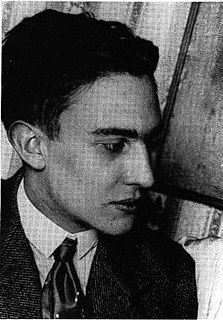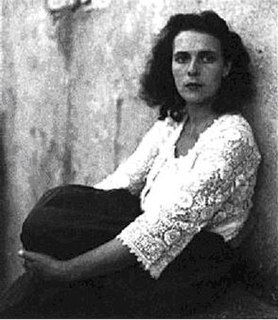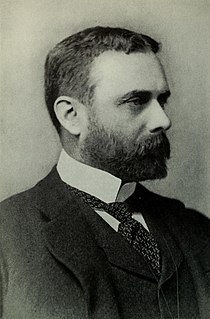A Quote by William Wordsworth
The thought of death sits easy on the man Who has been born and dies among the mountains.
Related Quotes
If a man considers that he is born, he cannot avoid the fear of death. Let him find out if he has been born or if the Self has any birth. He will discover that the Self always exists, that the body that is born resolves itself into thought and that the emergence of thought is the root of all mischief. Find from where thoughts emerge. Then you will be able to abide in the ever-present inmost Self and be free from the idea of birth or the fear of death.
In my incoherence I was grateful that for a few moments I had known what it was to suffer-or so I thought. But nothing is less like a thing that that which is closest to it. A man who had been near to death thinks how he knows death. When the day finally comes for him to meet it, he does not recognise it. 'This is not it,' he says, as he dies.
[In response to Alfred Tennyson's poem "Vision of Sin," which included the line "Every moment dies a man, every moment one is born."] If this were true, the population of the world would be at a stand-still. In truth, the rate of birth is slightly in excess of death. I would suggest that the next edition of your poem should read: "Every moment dies a man, every moment 1 [and] 1/16 is born." Strictly speaking, the actual figure is so long I cannot get it into a line, but I believe the figure 1 [and] 1/16 will be sufficiently accurate for poetry.
Weakness is a great thing, and strength is nothing. When a man is just born, he is weak and flexible. When he dies, he is hard and insensitive. When a tree is growing, it's tender and pliant. But when it's dry and hard, it dies. Hardness and strength are death's companions. Pliancy and weakness are expressions of the freshness of being. Because what has hardened will never win.
When an unbaked pot is broken, the potter can use the mud to make a new one; but when a baked one is broken, he cannot do the same any longer. So when a person dies in a state of ignorance, he is born again; but when he becomes well baked in the fire of true knowledge and dies a perfect man, he is not born again.






































